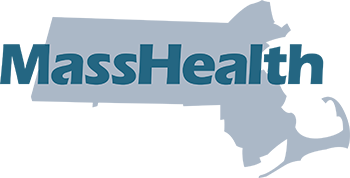The No Surprises Act protects people from getting surprise medical bills when they have an emergency, get services from an out-of-network provider at an in-network facility, or get services from an out-of-network air ambulance service provider. It also establishes a process for payment disputes between plans and providers. It provides new opportunities for dispute resolution for people who are uninsured or self-pay individuals when they receive a medical bill that is much greater than the good faith estimate they get from the provider.
If you have private health insurance, the new protections – which started in 2022 – will ban most types of surprise bills. If you’re uninsured or decide not to use your health insurance for a service, you can get an estimate of the cost of care before your visit. If you disagree with your bill, you may be able to dispute the charges. Here are some frequently asked questions about the No Surprises Act:
Am I protected against surprise medical bills?
Starting in 2022, the federal No Surprises Act (NSA) established new protections that prevent surprise medical bills for individuals covered under group and individual health plans. These new protections ban the most common types of surprise bills.
What types of surprise medical bills does the No Surprises Act protect against?
The No Surprises Act protects people covered under group and individual health plans from receiving surprise medical bills when they receive:
- most emergency services;
- non-emergency services from out-of-network providers at in-network facilities; and
- services from out-of-network air ambulance service providers.
It also establishes a new process to resolve payment disputes between plans and providers, and provides new resolution opportunities for uninsured and self-pay individuals when they receive a medical bill that is substantially greater than the estimate they get from their provider.
How does the No Surprises Act protect me from surprise bills if I have a medical emergency?
Before the No Surprises Act, people who went to an ER due to a medical emergency sometimes received bills for doctors and services (such as imaging and blood work) that were outside of their networks.
If you go to a hospital ER or licensed urgent care center because you are having a medical emergency, the NSA will protect you from being charged for anything above what your insurer ordinarily charges. That means you may have to pay a deductible and/or co-payment, as required under your insurance plan. However, you can’t be charged more than that expected amount.
How does the No Surprises Act protect me from surprise bills if I go to an in-network hospital for care?
Before the No Surprises Act, if you went to an in-network hospital and received care from an in-network doctor but another doctor providing care was considered out-of-network, you could have been billed for the services provided by the out-of-network provider (even though you likely assumed all of the doctors at the hospital would be part of your network since you went to an in-network facility).
The No Surprises Act bans out-of-network charges and balance bills for supplemental care (like anesthesiology or radiology) by out-of-network providers who work at certain in-network facilities (like a hospital or ambulatory surgical center). You will still be responsible for any in-network cost-sharing amounts that your insurance normally requires (for example, any deductibles or co-payments).
How does the No Surprises Act impact air ambulances and regular ground ambulances?
Under the No Surprises Act, if you are transported by an airplane or helicopter in a medical emergency, you will be treated as in-network, and you will get the coverage provided by your insurer without additional charges.
While air ambulances are covered as in-network, the No Surprises Act did not include protections for ground ambulances.
What is the “surprise billing protection form,” and what should I do if I receive it?
If you are scheduling treatment in advance, some doctors who are out of your network may request that you sign a form stating that you agree to pay out-of-network charges. By signing the form, you are waiving the No Surprises Act protections against surprise billing. Providers sending the waiver must provide a good faith, itemized estimate of how much their services cost and a list of in-network doctors who are available to provide the same care so that you can make the best choice about whether to sign or not. In most cases, the cost estimates must be provided at least three days before treatment.
Not all doctors can request this waiver. For example, emergency physicians and doctors who provide ancillary services to emergency physicians (such as assistant surgeons, anesthesiologists, radiologists, and hospitalists) may not request this waiver.
What should I do if I receive a surprise medical bill?
If you think you’ve received a surprise medical bill, you should contact the provider and your insurer. If the issue is not resolved, you can file a complaint with the Centers for Medicare & Medicaid Services (CMS) on its website or by calling 1-800-985-3059. Complaints must be filed within 120 days of receiving the first bill. The bill can’t be turned over to collections or have a late charge added to it while your complaint is being processed.






